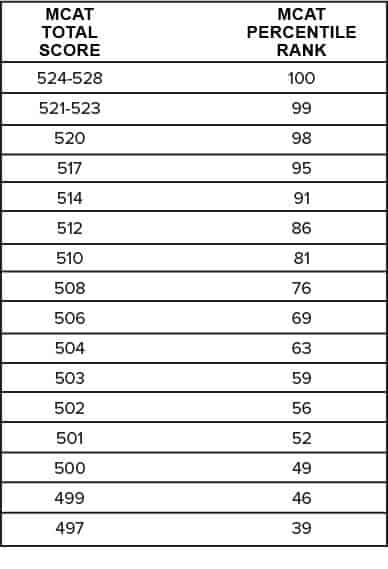– The MCAT is taken by over 80,000 students each year.
Many people aspire to become a doctor because you can make an impact in so many people’s lives on a daily basis. Being a doctor also means that you’ll have a lot of responsibility and a lot of training.
But before you can officially become a doctor, you’ll need to take an exam to be admitted into medical school so that you CAN become a doctor.
The MCAT is the Medical College Admission Test which is a formal exam that is required for admission into medical school. The MCAT is usually taken by students in their junior year of college. At this point in your college career, you would have more than likely gone through many of your pre-med courses which can make taking the MCAT exam a lot easier.
What’s on the MCAT?

The MCAT exam is used to help the admissions office in medical school see how well you do with problem-solving, critical thinking, and your knowledge of natural, behavioral, and social science concepts and principles.
The MCAT is a very intensive exam that is seven hours and thirty minutes long; this includes two 10-minute breaks and a 30-minute lunch.
The MCAT exam consists of four sections:
- Biological and Biochemical Foundations of Living Systems
- Chemical and Physical Foundations of Biological Systems
- Psychological, Social, and Biological Foundations of Behavior
- Critical Analysis and Reasoning Skills
Biological and Biochemical Foundations of Living Systems
The Biological and Biochemical Foundations of Living Systems section of the MCAT will require you to solve problems based on your knowledge of biological and biochemical concepts using your scientific inquiry and reasoning skills.
You’ll be given 95 minutes to answer 59 multiple-choice questions that cover:
- Basic biology
- Organic chemistry
- Inorganic chemistry
- Biochemistry
You’ll be tested over processes that are unique to living organisms such as:
- Growing and reproducing
- Maintaining a constant internal environment
- Acquiring materials and energy
- Sensing and responding to environmental changes and adapting
MCAT Biological and Biochemical Foundations Review
Chemical and Physical Foundations of Biological Systems

This section of the MCAT exam requires you to solve problems by using your knowledge of chemical and physical foundational concepts using your scientific inquiry and reasoning skills.
You’ll be given 95 minutes to answer 59 multiple-choice questions that cover:
- Basic biochemistry
- Biology
- General chemistry
- Organic chemistry
- Physics
You’ll be tested over your knowledge and understanding of the mechanical, physical, and biochemical functions of human tissues, organs, and organ systems. You’re also tested over the basic chemical and physical principles of the mechanisms in the human body.
MCAT Chemical and Physical Foundations Review
Psychological, Social, and Biological Foundations of Behavior
The Psychological, Social, and Biological Foundations of Behavior section requires you to solve problems with your knowledge of foundational concepts.
You’ll be given 95 minutes to answer 59 multiple-choice questions that cover:
- Psychology
- Sociology
- Biology
You’ll be tested on your knowledge and understanding of:
- The ways psychological, social, and biological factors influence perceptions and reactions to the world
- Behavior and behavior change
- What people think about themselves and others
- The cultural and social differences that influence well-being
- Relationships between social stratification, access to resources, and well-being
MCAT Psychological, Social, and Biological Foundations Review
Critical Analysis and Reasoning Skills
This section of the MCAT exam includes passages and questions that test how well you understand what you read. The passages in this section are between 500 and 600 words and are very thought-provoking. You’ll be given 90 minutes to answer 53 multiple-choice questions.
The passages in this section are similar to those that you might have seen on other standardized tests. The information in the passages is a variety of humanities and social sciences.
MCAT Critical Analysis and Reasoning Skills Review
How is the MCAT Scored?
Each section of the MCAT is scored separately and on the same score range of 118 to 132. All four sections contain between 53 to 59 questions giving the weight of each question 2 points. You are also not penalized if you get an answer incorrect or if you leave a blank answer.
The score you receive in each section of the exam is simply added together. You can receive a score ranging between 472 to 528.

What is a Good MCAT Score?

A good MCAT score, one that puts you in the top 50%, is a score of 500.
A good MCAT score depends on the requirements of the medical schools that you’re applying to. It’s always a good idea to contact the medical school that you’re wanting to get into to see what they require as far as your MCAT score.

